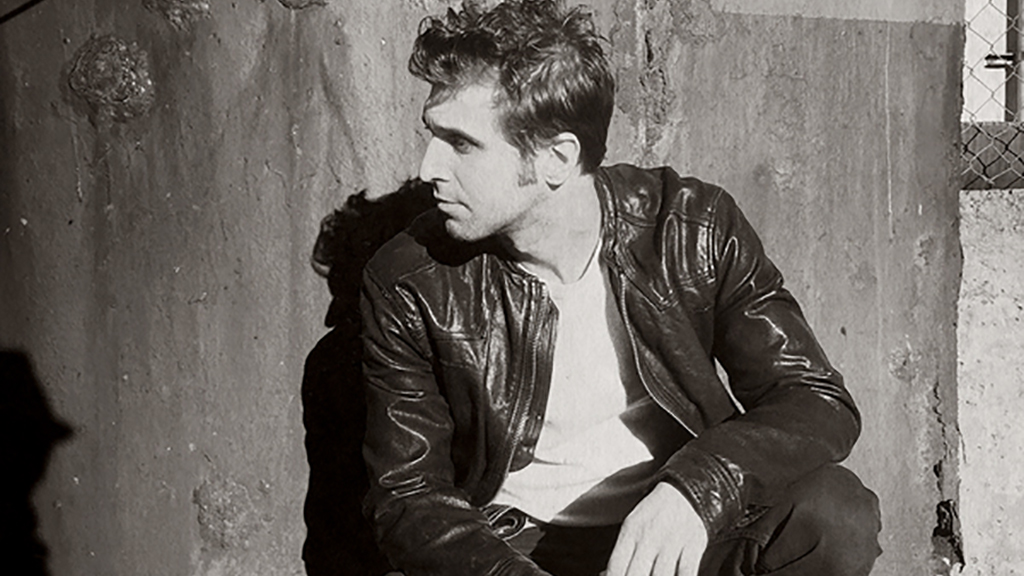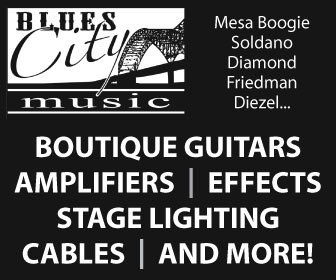Radiator King
Radiator King's Adam Silvestri draws upon deep roots in American music, plus a modern punk rock soul, to create a darkly beautiful sound and music video for "The Guns You Pawned"

In the exclusive premiere of his music video, "The Guns You Pawned," the Huffington Post calls Radiator King's Adam Silvestri "a former punk rocker" who has "retired from the punk scene." While he is long removed from the Boston basements and dives that shaped his musical sensibilities, there is no doubt that he's still punk where it counts.
Silvestri has spent the last several years touring the United States, developing a sound that is strongly regional, yet hauntingly universal. Deeply cutting into the very roots of American music, traces of early blues, mid-century folk, and working-class rock and roll, he creates a darkly beautiful sound, layered with raw, honest songwriting.
"The Guns You Pawned" comes off Radiator King's third studio album, the outstanding "A Hollow Triumph After All". We caught up with Silvestri to talk about the video and his music, as he was getting ready to head out on his latest tour.
The video has a really dark, moody vibe, with powerful accents of fire and light throughout. Is there something viewers should get out of that "light from the darkness" motif?
While there was definitely an effort to have the visuals match the emotion in the song, I am not so sure the motif you mention was intended. However, it's an interesting take on it. Maybe there was something like that going on subconsciously.
Your roots are in hardcore punk. Punk music seems to be missing these days, despite the atmosphere in the country being perfect for punk rebellion. Do you think a next wave of punk is on its way?
Yeah, I do think so. Usually the quality of rebellious music is at its best during turbulent times. If the past is an indication if the future, I think we should see some good stuff happening.
However, I think it is important to establish what punk rock actually is. Maybe we all define these kinds of abstract terms for ourselves in our own terms, but for me it's always been about raw passion, unwavering ideals, an attitude that encapsulates bravery and toughness, and commitment to an ideology.
Now this usually results in somewhat of a sound - fast, raw, energetic music - but it doesn't always have to be. As long as these foundational elements are at the foundation and it comes oozing out from the music, then the sonic sounds can be vast.
For instance, take the seminal hardcore label SST: those bands are a bunch of outcasts that sound nothing alike! You had bands like the Minutemen, Black Flag, and the Meat Puppets, and they all couldn't have sounded more different. What united them was that they didn't fit into a musical genre and had the courage to continue with their music despite that. So I guess to me, punk today should not sound just like it did long ago; it shouldn't be a rehashing of what the Sex Pistols did because that goes against everything that punk rock is. Bands like the Clash were true punk rock pioneers in my eyes because they always took chances with their music, pushing it to new corners and coming up with new sounds all the while keeping a certain raw energy at the foundation of it all.
I would argue that if there is a lack of punk rock music out there like you have suggested, it is due to the fact that bands are too concerned with what punk rock should sound and look like rather than what it actually is: an ideology. Punk rock was a response to messed-up times; it was kids standing up and saying that they didn't buy what was being sold and it was genuine, at least, at its onset.
You're from Boston, now living in New York, and the new album has very deep New Orleans blues influences. Do you feel these strong regional roots affecting how your music is evolving?
Absolutely. The more you listen to and write music the deeper the journey takes you. When there is a band or artist that I really like, my instinct has always been to discover who their influences were and then go further and find out who their influences were. As you begin to take this journey, you start to get closer to the heart of American music. If you want to truly understand something you must go back to its roots.
For this album you are exactly right, there is absolutely a strong New Orleans feel going on. Specifically, what I had in mind was the sounds of a New Orleans funeral procession because I saw a strong parallel between the emotion I sought to convey with the album and the sounds of the funeral procession. It's a somber feeling I was after, that feeling we get when things end and new ones begin; it's not purely happy nor purely sad, it's someplace in between.
"I know there's no sticking to the guns you pawned a long time ago" is such a great lyric. It feels like a delta blues version of Bob Dylan's "Mama, put my guns in the ground, I can't shoot them anymore." Are there songwriters you'd consider part of the music tradition you're continuing?
Yes, absolutely. It's a tradition that goes way back to guys like Leadbelly, hell even before him, before there was ever even recorded music! They took forms and experimented with them with their own unique flavor. More modern guys like Brian Fallon and Tim Barry follow in that tradition as well.
You mention Bob Dylan, he's probably my all-time favorite artist and the fact that you mentioned a line from my song in the vicinity of a Bob Dylan line is a great honor. I have been writing songs for so long and it has always been something extremely sacred to me. For any serious songwriter the process becomes your life because you realize the importance and impact a beautiful song can have on this world. We know because that's the impact songs have had on us! I can remember as a kid listening to songs like "It's Alright Ma" and just feeling saved. If I can somehow be a part of that tradition as a songwriter, that is an absolute honor and privilege.
How about your own "guns"? Has it been difficult to maintain your values while developing your music career, or are there compromises you've made and later regretted?
I consider myself to be fortunate because growing up I had an older brother who took me to go see hardcore and punk shows around the Boston area from a very young age. If you know anything about these scenes that were going on at the time, they all focused around moral codes that were just as important, if not more important, than the music itself. Community was always number one, and the musicians on stage were equals with the folks in the audience. The whole movement was in resistance to everything that characterized the commercial rockstar.
So because I had this experience in life, I would say that the foundation for my approach to music is built upon these ideals. I am very thankful for that. I owe a great deal to guys like Aaron Bedard of Bane who taught me about being true to myself. I know what I stand for and what I am ok with doing and what I am not ok with doing, which is actually a really hard thing to know when you are involved in the music business.
People in the industry constantly bombard you with rhetoric like "this is just the way it is, if you don't do it you will never have any success." I feel sorry for artists who are swayed when businessmen in the industry convince them that they must operate in certain ways that go against their morals or beliefs. Usually they are just trying to mimic something successful they observed and don't have the first clue about art or music or anything else.
So, no, I can't say I have any regrets about the way I have conducted myself throughout it all and I owe it all to those who came before me and set a righteous example.
Watch "The Guns You Pawned" (Official Video) by Radiator King

Matt Mrowicki founded Chorus and Verse in 2001. He is a rock star designer and technologist, Internet professional, content creator, and entrepreneur specializing in web development, IT consulting, branding, social media and online marketing. www.imprtech.com









